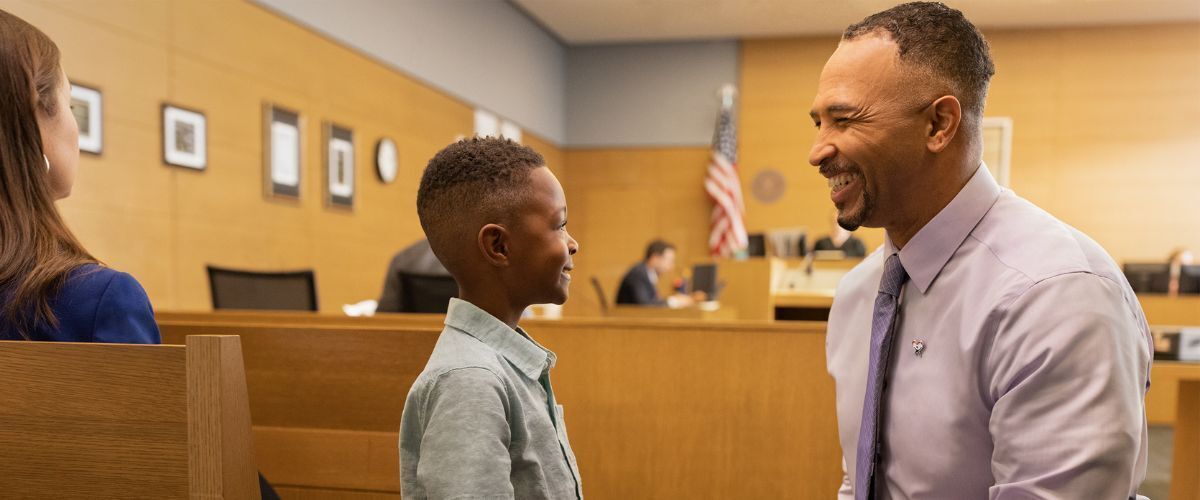
NEWS
The National CASA/GAL Association is dedicated to leveraging research-based insights for informed decision-making and to enhance best-interest advocacy practices. Equipped with this knowledge, the CASA/GAL network can further its mission, ensuring that the children and youth it serves have the best possible chance to thrive.
Children in the foster care system are among the most vulnerable populations in the United States. They face some of the most difficult experiences for a child, and many who are without a parent or guardian, face them alone. Volunteer advocate programs like the court-appointed special advocate/guardian ad litem (CASA/GAL) programs are a critical lifeline of support for children in foster care, providing children with an advocate and judges with fact-based information to make the most well-informed decision on the best interest for a child.
Attempting to draw a straight line between long-term child outcomes and CASA/GAL advocacy fails to appreciate what the program is inherently designed to do: equip judges in family court with information and recommendations so they can decide what is best for a child.
While CASA/GAL volunteers play a critical role in helping a judge decide, ultimately it is a judge, not the CASA/GAL volunteer, who makes a determination as to what is in the interest of a child. Our core mission is to provide best-interest advocacy on behalf of children, and our volunteers act as the eyes and ears of judges so they can make the most well-informed decisions for children in foster care.
This idea of using carefully trained community volunteers to speak for the best interest of children in the courtroom was conceived by a former judge, Judge David Soukup, in 1977. Judge Soukup was concerned about making decisions affecting the lives of abused and neglected children without sufficient information or input from people who had spent quality time with the children. As such, the CASA/GAL model was created to address this concern.
Given that CASA/GAL’s core model is based on acting as an agent of the court, the best measurement of our program’s success is the court’s evaluation. Studies that have assessed judges’ perspectives on the CASA/GAL model show that 93% of judges have had a positive or very positive experience with the CASA/GAL program*. Time and time again, judges continue to appoint CASA/GAL advocates to children in the foster care system. These studies are a strong indication of the effectiveness of our model and provide the best assessment of outcomes most relevant to the CASA/GAL core model.
As with any program similar to the CASA/GAL program, evaluation is critical. It only helps us to better deliver services and adjust practices to ensure the greatest impact. We routinely evaluate the CASA/GAL model to ensure that children served have the most effective best-interest advocacy. The national organization, state organizations and local CASA/GAL programs conduct research to measure their effectiveness.
But as the CASA/GAL volunteer does not make the ultimate decision in these dependency cases, we must consider this lens when conducting evaluation. Additionally, in any research around our programs, we must always account for the subjective and sensitive nature of the work. We are dealing with children who have experienced trauma, neglect or loss.
With this in mind, a key priority for National CASA/GAL in the coming months is the implementation of a new strategic plan that aims to enhance overall research practices and develop a framework and systems for capturing data that can be used to further measure the effectiveness of the CASA/GAL model. We look forward to launching the plan, which we believe will help enhance our mission to support children and provide them with best-interest advocacy inside and outside the courtroom.



